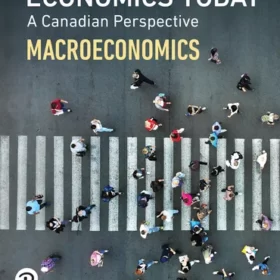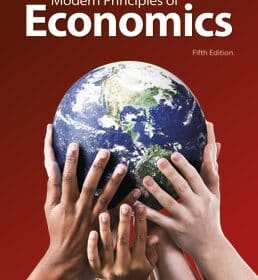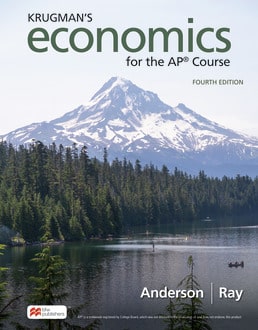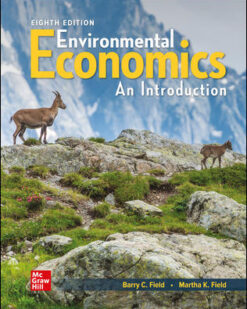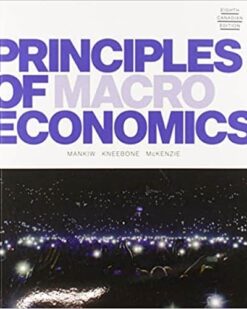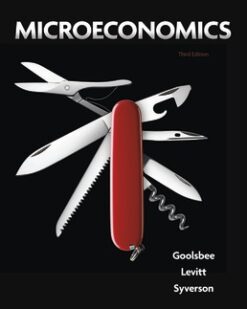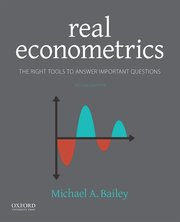Description
Krugman’s Economics for the AP Course
Table of contents for Economics for the AP Course 4th edition
Macroeconomics
UNIT 1 Basic Economic Concepts
1.1 Scarcity and Choice
1.2 Opportunity Cost and the Production Possibilities Curve Model
1.3 Comparative Advantage and Gains from Trade
1.4 Demand
1.5 Supply
1.6 Market Equilibrium, Disequilibrium, and Changes in Equilibrium
Unit 2 Economic Indicators and the Business Cycle
2.1 The Circular Flow and Gross Domestic Product
2.2 Limitations of Gross Domestic Product
2.3 Unemployment
2.4 Price Indices and Inflation
2.5 Costs of Inflation
2.6 Real Versus Nominal Gross Domestic Product
2.7 Business Cycles
Unit 3 National Income and Price Determination
3.1 Aggregate Demand
3.2 Multipliers
3.3 Short-Run Aggregate Supply
3.4 The Long-Run Aggregate Supply Curve
3.5 Equilibrium in the Aggregate Demand–Aggregate Supply Model
3.6 Short-Run Changes in the Aggregate Demand–Aggregate Supply Model
3.7 Long-Run Self Adjustment in the Aggregate Demand–Aggregate Supply Model
3.8 Fiscal Policy
3.9 Automatic Stabilizers
Unit 4 The Financial Sector
4.1 Financial Assets
4.2 Nominal Versus Real Interest Rates
4.3A Definition, Measurement, and Functions of Money
4.3B Central Banks and the Federal Reserve
4.4 Banking and the Expansion of the Money Supply
4.5 The Money Market
4.6 Monetary Policy
4.7 The Loanable Funds Market
Unit 5 Long-Run Consequences of Stabilization Policies
5.1 Fiscal and Monetary Policy Actions in the Short Run
5.2 The Phillips Curve
5.3 Money Growth and Inflation
5.4 Government Deficits and the National Debt
5.5 Crowding Out
5.6 Economic Growth
5.7 Public Policy and Economic Growth
Unit 6 International Trade and Finance
6.1 Balance of Payments Accounts
6.2 Exchange Rates
6.3 The Foreign Exchange Market
6.4 Changes in Policies, Economic Conditions, and the Foreign Exchange Market
6.5 The Foreign Exchange Market and Net Exports
6.6 Real Interest Rate and International Capital Flows
Appendix Putting it All Together
AP® Macroeconomics Exam
Practice Test
Macroeconomics Enrichment Modules
A: Recession and Recovery During the Pandemic
B: Federal Reserve Monetary Policy in an Ample Reserve Regime
Microeconomics
UNIT 1 Basic Economic Concepts
1.1 Scarcity and Choice
1.2 Economic Systems
1.3 The Production Possibilities Curve
1.4 Comparative Advantage and Trade
1.5 Cost-Benefit Analysis
1.6 Consumer Choice
Unit 2 Supply and Demand
2.1 Demand
2.2 Supply
2.3 Price Elasticity of Demand
2.4 Price Elasticity of Supply
2.5 Income Elasticity and Cross-Price Elasticity
2.6 Consumer Surplus, Producer Surplus, and Market Equilibrium
2.7 Market Disequilibrium and Changing Market Conditions
2.8A Government Intervention: Taxes, Subsidies, and Markey Efficiency
2.8B Government Intervention: Price and Quantity Controls
2.9 International Trade and Public Policy
Unit 3 Production Costs, Profit, and Perfect Competition
3.1 The Production Function
3.2 Short-Run Production Costs
3.3 Long-Run Production Costs
3.4 Types of Profit
3.5 Profit Maximization
3.6 Firms’ Entry and Exit Decisions
3.7 Perfect Competition
Unit 4 Imperfect Competition
4.1 Introduction to Imperfect Competition
4.2 Monopoly
4.3 Price Discrimination
4.4 Monopolistic Competition
4.5 Oligopoly and Game Theory
Unit 5 Factor Markets
5.1 Introduction to Factor Markets
5.2 Changes in Factor Demand and Supply
5.3 Profit Maximization in Factor Markets
5.4 Monopsony
Unit 6 Market Failure and the Role of Government
6.1 Market Outcomes and Social Efficiency
6.2 Externalities
6.3 Public Goods
6.4 Government Policies
6.5 Income and Wealth Inequality
AP® Microeconomics Exam
Practice Test
Microeconomics Enrichment Modules
C: Behavioral Economics
D: The Economics of Information
E: Indifference Curves and Consumer Choice
AP® Economics Skills Appendix:
Graphs in Economics
Test Bank For Krugman’s Economics for the AP Course Fourth Edition by David Anderson by David Anderson
Shop Page
